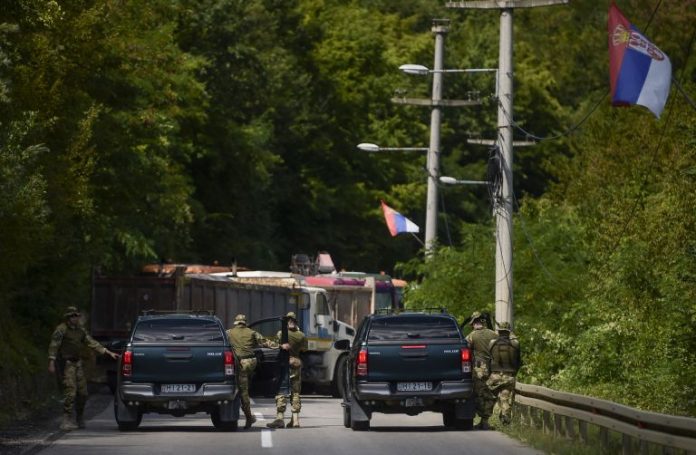Ethnic tensions in northern Kosovo could trigger a repeat of the violence seen in the area last year. Back then, four people were killed in a firefight and NATO peacekeepers were injured in the clashes.
US Navy Admiral Stuart B. Munsch, commander of NATO’s Joint Forces Command Naples, which oversees NATO peacekeeping operations in Kosovo, expressed concern over the continued risks of a repeat of violence in the volatile north of the country.
Heated political rhetoric could inspire some non-government forces to commit violence such as what happened last year. I would not say that definitely conflict is coming, I think there is a persistent risk, Munsch told reporters in Pristina, referring to a lack of progress in EU-mediated talks between Kosovo’s government and Serbia.
In September 2023, a policeman and three armed men died when the armed assailants entered from Serbia and attacked police in the village of Banjska. Four months earlier, over 90 soldiers suffered injuries when Serbian protesters attacked NATO peacekeepers. As a result, Kosovo accused Serbia of involvement in the Banjska attack, but Belgrade has denied the allegations.
The US and the European Union, Kosovo’s top global allies, have criticised the Pristina government for unilateral action in the north. Kosovo rejects such criticism and the issue has strained Pristina’s relations with its Western backers. Through an EU-mediated dialogue, Kosovo and Serbia have been negotiating for more than a decade to normalise their relations, but there has been no progress so far.
Belgrade considers Kosovo part of Serbia and refuses to recognise it as a state. In addition, Kosovo is majority ethnic Albanian, but some 50,000 Serbs in the north reject the Pristina government and consider Belgrade their capital. As a former Serbian province, Kosovo declared independence in 2008, a decade after a guerrilla uprising.
